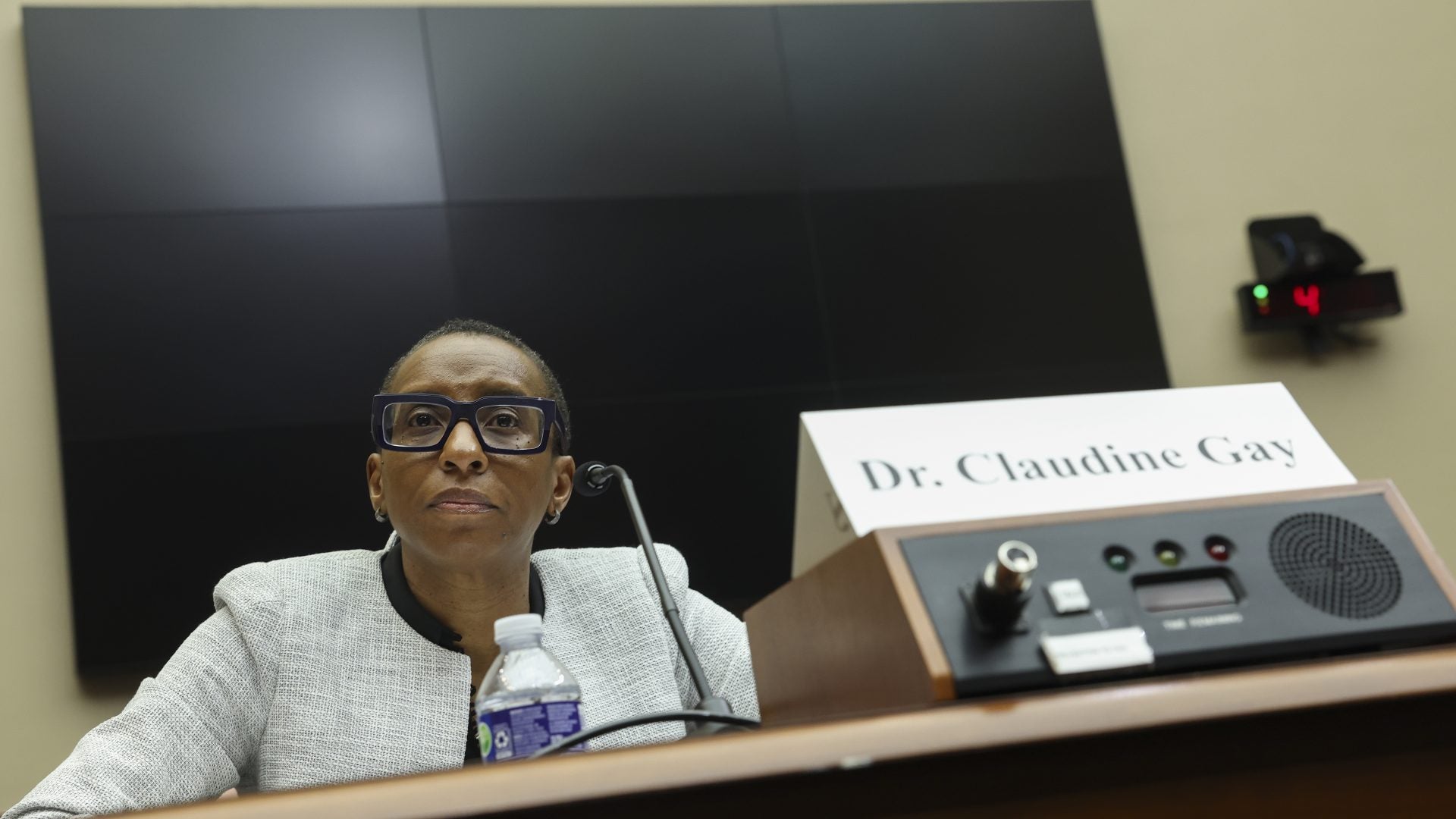
Harvard University’s first Black President Claudine Gay has resigned Tuesday.
According to The Harvard Crimson, Gay’s six-month and two-day tenure marks “the shortest presidency in the University’s history.”
Gay announced the news in a letter addressed to the Harvard community, “It is with a heavy heart but a deep love for Harvard that I write to share that I will be stepping down as president.”
“This is not a decision I came to easily. Indeed, it has been difficult beyond words because I have looked forward to working with so many of you to advance the commitment to academic excellence that has propelled this great university across centuries,” Gay’s letter continued.
Gay also divulged that she came to this decision after conferring with the Harvard Corporation, the highest governing board at Harvard. “It has become clear that it is in the best interests of Harvard for me to resign so that our community can navigate this moment of extraordinary challenge with a focus on the institution rather than any individual,” continued Gay.
“These past several months have seen Harvard and higher education face a series of sustained and unprecedented challenges,” the Harvard Corporation said in an independent statement.
“While President Gay has acknowledged missteps and has taken responsibility for them, it is also true that she has shown remarkable resilience in the face of deeply personal and sustained attacks. While some of this has played out in the public domain, much of it has taken the form of repugnant and in some cases racist vitriol directed at her through disgraceful emails and phone calls. We condemn such attacks in the strongest possible terms,” the Harvard Corporation statement continued.
This abrupt departure comes after Gay has been accused of plagiarism and following her testimony at a Congressional hearing on antisemitism last December. It has been “difficult beyond words” Gay said.
“Amidst all of this, it has been distressing to have doubt cast on my commitments to confronting hate and to upholding scholarly rigor — two bedrock values that are fundamental to who I am — and frightening to be subjected to personal attacks and threats fueled by racial animus,” wrote Gay.
Gay also touched on her legacy, even though her time in office was short-lived, saying “When my brief presidency is remembered, I hope it will be seen as a moment of reawakening to the importance of striving to find our common humanity — and of not allowing rancor and vituperation to undermine the vital process of education.”
What’s next for Gay? She disclosed in her letter that she would be staying at the university as a faculty member and returning “to the scholarship and teaching that are the lifeblood of what we do.”
Jonathan L. Swain, spokesperson for Harvard, has declined to comment on Gay’s departure. The Harvard Corporation announced that Alan M. Garber, Class of ’76 and University Provost, will step in as interim president of Harvard while the search is conducted for the permanent successor to fill Gay’s former role.
Gay is not the first Ivy League president impacted by public scrutiny following the congressional hearing—University of Pennsylvania president Liz Magill stepped down last December in the wake of public outcry.